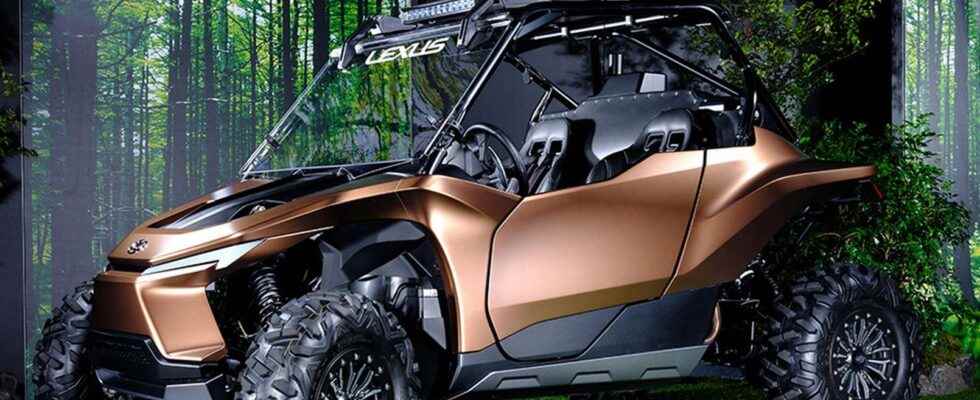At the Tokyo auto show, Lexus unveiled a small all-terrain vehicle equipped with a 1.0 liter 3-cylinder combustion engine powered by compressed hydrogen. A breakthrough that opens up new perspectives as an alternative to lithium-ion batteries.
You will also be interested
Lexus, Toyota’s premium division, has developed a new concept, dubbed ROV (for Recreational Off-highway Vehicle), a hydrogen car one of a kind. In form, it is a fairly classic buggy, with exposed suspension, roll bar and large tyres. Where it stands out is on the side of its engine at hydrogen. Its 1.0 liter displacement engine works like a classic thermal model. However, it is powered by hydrogen from a high tank pressure. This system produces almost zero episode of CO2, despite a negligible amount of oil burned while driving. Furthermore, the combustion rapid hydrogen significantly increases the engine torque, in order to offer the same sound sensations as a thermal block!
Lexus thus demonstrates that, in absolute terms, thehydrogen could be used for other purposes than simply powering an electric motor, as is the case with the famous Mirai, produced by its parent company Toyota. This has also recently broken a world record for autonomy, for a production car, by driving more than 1,000 km with a single charge of hydrogen.
Hydrogen is also of interest to French manufacturers
As a reminder, a hydrogen car can travel great distances without producing any CO2 emissions, the vehicle emitting only water. In addition, refueling only takes a few minutes unlike recharging with electricity. Besides Toyota, Honda and Hyundai are today the manufacturers most involved in the development of cars equipped with fuel cells and running on hydrogen.
In France, the group Renault and Stellantis (via Citroen, Peugeot and Opel) have already presented their first models, for the moment limited to a few utilities. Other more original projects are also being built around this technology, such as the project Hopium Machina, a top-of-the-range saloon intended to achieve unprecedented performance for a production hydrogen vehicle, i.e. to exceed 500 hp of power while offering up to 1,000 km of autonomy. Its production could start from 2026.
The all-terrain ROV concept from Lexus. The compressed hydrogen is stored in a high pressure tank and sent to the engine via direct injectors. © Lexus
Interested in what you just read?
.
fs8
